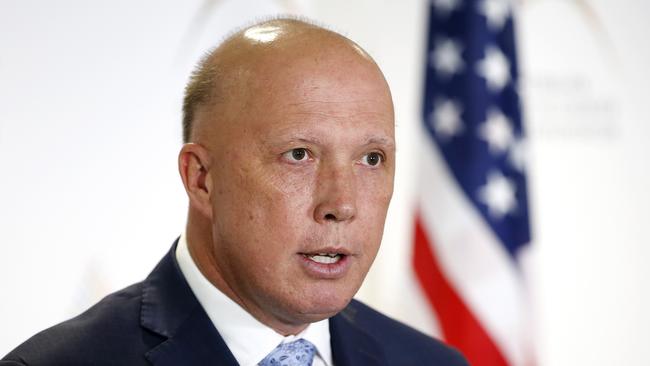AFP set for dark web attacks on crime
National security agencies will be given unprecedented authority to launch cyber attacks targeting pedophiles, terrorists, drug-traffickers and organised crime.

National security agencies will be given unprecedented authority to launch cyber attacks targeting pedophiles, terrorists, drug-traffickers and organised crime gangs operating in the darkest reaches of the internet under new laws.
The Australian Federal Police and Australian Criminal Intelligence Commission would be able to use the sweeping powers to obtain warrants taking over the online accounts of suspected criminals using the anonymity of the encrypted dark web, modify and delete data to disrupt offenders, and covertly collect intelligence.
The Morrison government will table its dark web amendments to the Surveillance Devices Act and Crimes Act on Thursday, but the laws are unlikely to pass through the Senate until next year.
The AFP and ACIC have argued that dark web powers were needed to track, disrupt and apprehend the worst offenders, who would otherwise be invisible to police and security agencies.
Previous police investigations involving right-wing and Islamic extremists, drug-traffickers, organised crime gangs, child-sex offenders and cyber criminals using encrypted messaging apps and dark web accounts would have been fast-tracked using the new warrants.
Under the legislation, investigators will be able to crack encrypted messages, devices and software facilitated by cyber criminals and tech companies, and target anonymous criminal syndicates hiding in the dark web.
The reforms, announced as part of the 10-year Cyber Security Strategy, give security and intelligence agencies powers to “identify and disrupt threats that are proliferating on the dark web and through other anonymising technologies”.
Home Affairs Minister Peter Dutton said rapidly evolving technology had changed criminals’ tradecraft, with authorities lumbered with outdated laws adding years to investigations.
“This bill will allow the AFP and ACIC to shine a light into the darkest recesses of the online world and hold those hiding there to account,” Mr Dutton said. “As a government, we are determined to provide our agencies with all reasonable powers necessary to protect the lives of children and to protect the Australian public from criminals acting anonymously online to perpetrate other serious crimes.”
The current AFP and ACIC computer access powers are not designed to address emerging threats “perpetrated by the increased use of anonymising technologies by large networks of criminals operating online”.
Mr Dutton said the new powers were critical in “enabling law enforcement to tackle the fundamental shift in how serious criminality is occurring online”.
“Without enhancing the AFP and ACIC’s powers, we leave them with outdated ways of attacking an area of criminality that is only increasing in prevalence,” he said.
“This bill demonstrates the government’s commitment to equipping the AFP and ACIC with modern powers that ensure serious criminality targeting Australians is identified and disrupted as resolutely in the online space as it is in the physical world.”
Network activity and data disruption warrants would grant the agencies powers to collect intelligence on the “most harmful and serious criminal networks operating online” and disrupt serious criminality online, including remote modification of data to frustrate offenders.
The data disruption warrant would allow investigators to modify or delete child abuse images and the account takeover power enables the AFP and ACIC to take control of a person’s online account for the purpose of “gathering evidence leading to prosecutions of a serious offence”.



To join the conversation, please log in. Don't have an account? Register
Join the conversation, you are commenting as Logout